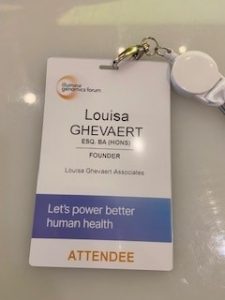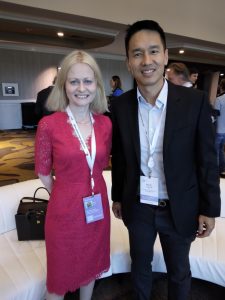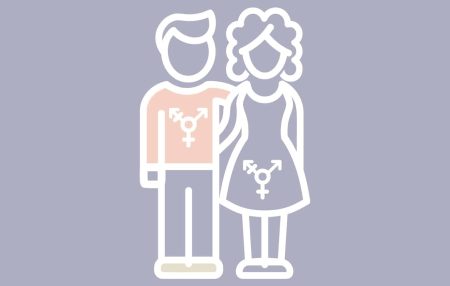5 October 2022
Louisa Ghevaert was delighted to attend a spotlight speech by Bill Gates at Illumina’s inaugural in-person Genomics Forum in San Diego on 30 September 2022. Building on more than 20 years work on global health and development Bill Gates, co-chair of the Bill & Melinda Gates Foundation, addressed how genomics are supporting and advancing global health and can help stop the next pandemic.
Images: Bill Gates co-chair of the Bill & Melinda Gates Foundation.
The Bill and Melinda Gates Foundation
For over 20 years, the Gates Foundation has worked to help improve global health systems and save lives, end preventable infectious diseases, tackle malnutrition and pave the way for economic growth. As such, the Gates Foundation has worked tirelessly with its many partners to support the global response to the Covid-19 pandemic, spending more than US $2 billion to help contain and combat Covid-19 and develop new tests, treatments and vaccines.
How To Prevent the Next Pandemic
Earlier this year (2022), Bill Gates published a book “How to Prevent the Next Pandemic” in which he writes that disease outbreaks are inevitable, but pandemics are optional if we take the right steps and make the right investments. He explains that lessons need to be learned from the last two years of the Covid-19 pandemic. The world did not prioritize global health until it was too late. Countries failed to prepare for pandemics, having reduced funding for R&D and having failed to strengthen their health systems.
Mr Gates proceeds to outline in his book the measures that should be taken to prevent another pandemic, building on steps taken during the Covid-19 pandemic to include:
- Make and deliver better tools and keep investing in better vaccines, therapeutics and diagnostics.
- Improve disease monitoring, by creating a permanent Global Epidemic Response and Mobilization (GERM) team, comprising multi-disciplinary experts from across the world in epidemiology, genetics, data systems, diplomacy, rapid response, logistics, computer modeling, communications and more.
- Strengthen health systems, which he estimates will cost the world an extra $30 billion annually in addition to the money that should already be spent to improve health in low income countries.
Illumina Genomics Forum 2022
Continuing to build on his global health and development work, Mr Gates explained that amazing progress has been made with child mortality cut in half since 2000. However, there is still a great deal of work that needs to be done to improve global health. He explained that Malaria still resulted in 627,000 deaths in 2020 and continues to evolve as an infectious disease with many different species of mosquito and continued drug resistance. As such, gene-editing technology will be deployed into mosquito populations to help eradicate Malaria disease.
Mr Gates explained that we are making progress in understanding transmission of HIV virus and when to change therapy. However, having previously eradicated Polio virus in all but two countries, Pakistan and Afghanistan, we are now seeing it spread back to other countries including the UK. To further combat these and other diseases we are now taking genomic data to map the location and spread of disease, which is proving helpful in the ongoing fight against Covid-19. Added to this, we are seeing the ability to interfere more rapidly with virus antibodies and develop vaccines.
Mr Gates explained that previously nutrition was poorly understood in developing countries. Now, we are looking at the microbiome and how this interacts with drugs taken and food that is eaten to improve understanding of global health. He explained that whilst we are only beginning to gain an understanding, foundational work on nutrition intervention is being undertaken to encourage good microbiome in children and to discourage the bad. He added that malnutrition is a big problem in Africa and that an understanding of the microbiome is also relevant for colon cancer; interventions for which which could potentially be very cheap.
Mr Gates explained that when Covid-19 hit, global disease surveillance was very poor and early in the pandemic most genomic sequencing was done in rich countries. He explained that we are now beginning to change this and see a difference. That said, equity has to guide what we are doing and we must continue to find the gaps and work with the right partners to solve them. He went on to explain that our current health circumstances post-pandemic are not what we want, saying “It’s 20 million lives lost, $20 trillion dollars, huge deficits, learning loss, mental stress. We are going to be digging our way out of this for a long time.” That said, he explained that we have the genomic capability to help improve human health all over the world and that there is huge benefit to health systems to use genomic technology.
Mr Gates explained that we are also continuing to deploy gene-editing technology in plants to better understand disease resistance and improve productivity. The most dramatic suffering from climate change is experienced by poor farmers near the equator when their crops fail and also following flooding and droughts around the world. These continue to be challenges and we therefore need to continue to advance the use of genomic technology to address these and produce plants that can resist disease.
Mr Gates then explained that we could have an intentionally designed pathogen, with a fifty percent mortality rate, reaching pandemic level. We therefore need to scale up diagnostics quickly and every country needs to be pandemic ready. We also need the Global Epidemic Response and Mobilization (GERM) team to operate internationally with the World Health Organization (WHO). Mr Gates added that there is also a fifty percent chance of a naturally caused pandemic over the next twenty years, caused by a zoonosis spillover event. As such, if we have vaccines ready we can help limit their spread and develop surveillance tools to address the risk of bioterrorism.
Mr Gates concluded his spotlight speech by explaining that to help the world get better prepared, the Gates Foundation has pledged to increase annual spending on global health from $6 billion to $9 billion (since wealth from Microsoft has been well invested along with Warren Buffet’s contribution). He went on to explain that with governments dealing with the costs of the Ukrainian war, competition for aid from rich countries to poor countries is acute at the moment. As such, the next five years will be challenging but with more money and being smart in what we do we can continue to accelerate progress.
Images: co-chair of the Bill & Melinda Gates Foundation, Louisa Ghevaert CEO of Louisa Ghevaert Associates, Martin Chian Ph,D Senior Director, Software and Bioinformatics at Illumina.













